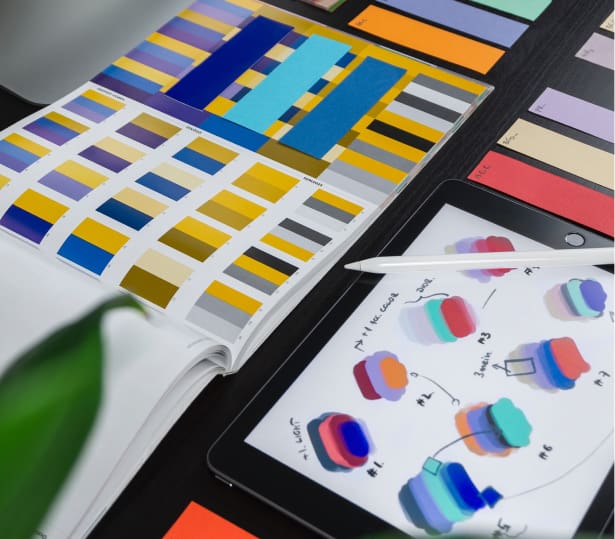5 Trends in Digital Marketing for 2021

During the previous year, the COVID-19 pandemic fundamentally altered almost every aspect of daily life. The changes that customers and businesses were forced to make in response will have lasting effects, and businesses will need to adapt to the “new normal” in order to thrive moving forward.
However, marketers have reason for optimism. Though ad spending decreased overall in 2020, digital channels like paid search held steady and seem poised to thrive in the coming years. What does the future hold for digital marketing strategies? And how should today’s marketers be prepared for what’s to come?
1. Digital Pivots Are Here to Stay
With the drastic reduction in retail shopping and in-person interaction in 2020, many businesses were forced to pivot to digital methods of conducting business. Restaurants and retailers added delivery service and curbside pickup through websites and mobile apps. Companies added live chat services, video conferencing, and virtual events to replace in-person meetings. The digitization of almost every industry was shoved forward in 2020.
Consumers have grown comfortable with this shift in the marketplace, and digital marketers will need to embrace this trend. Social media has become the primary avenue for companies to engage with their customer base — to be successful, you’ll need to leverage the advanced features of your profiles and website to create a powerful, positive digital experience for your customers.
2. Social Will Drive Purchases, Not Just Discovery
Social media is an excellent platform for showing off products, but to complete the purchase cycle, most social media advertising directs traffic to an advertiser’s retail website. In an effort to keep traffic on their sites and streamline the purchase process, companies like Facebook and Google are adding functionality that allows shoppers to find, learn about, and buy products without ever leaving their platforms.
Soon it may not be in a retail brand’s best interest to rely on their websites and DTC model to drive sales. Similar to the way that many brands moved to Amazon to reach a broader audience, many retailers will need to build a presence on other social media platforms that allows them to sell directly.
3. Customers Expect Informed Companies
A personalized shopping experience has always been the objective of digital marketing campaigns. Today, customers expect the companies they shop with to know who they are. They want the contents of their carts to persist between visits, they don’t want to be shown ads for items they’ve already purchased, and they want to see suggestions that are relevant to their interests and needs.
Digital marketers have been collecting data and using it to inform automated marketing and personalized websites for years. With the digital shift of 2020, what was previously an advanced customer experience has quickly become the norm. To remain relevant and competitive, marketers will need to continue to expand on these data-driven concepts. Customers will expect a high-quality, personalized experience from the brands they interact and engage with.
4. Events Will Stay Virtual
COVID-19 brought harsh restrictions on travel and large gatherings. As a result, seminars, conferences, and trade shows in every industry were either transitioned to online meetings or canceled outright. While restrictions may ease heading 2021, we expect virtual events to remain relevant for reasons beyond those tied to public health concerns.
Event hosts can host hundreds (or even thousands) of virtual attendees without renting large spaces, which equates to a much higher ROI for hosts. Attendees, in turn, can save on the significant time and expense associated with traveling to events, allowing them to participate in far more events in a given year than they otherwise would have.
For marketers, the lesson is clear: host virtual events. Redirect the budget you would have spent on a hotel banquet hall toward promoting the event and production quality, focusing on creating a timely, relevant, and genuinely engaging event for your attendees.
5. Cutting Back on Social Media
The number of social media channels available to marketers has grown significantly in recent years. In addition to the big players, marketers have to consider managing accounts on platforms like Pinterest, WhatsApp, Tumblr, TikTok, Reddit, Snapchat, Medium, and more. With a presence on every channel, your company has to dedicate time and resources to creating and scheduling posts, engaging with other users, and building a following.
Recently, it appears we’ve reached a point of diminishing returns in the social space. Marketers have begun to realize that the ROI of casting a wide net is lower than that of focusing on a few profitable social platforms, and many of them are reassessing the value of each, choosing to maintain a presence on a handful of social platforms. We anticipate that this trend will continue in 2021, with digital marketing operations of all sizes focusing on the areas that generate the best returns and abandoning those that provide little value or return.
Looking Forward
The atmosphere in the marketing world is one of optimism. With the worst of the pandemic seemingly behind us, the chaos of 2020 will hopefully ebb along with it. But many of the long-term effects of the pandemic and its effects on the way consumers and businesses interact are here to stay.
As we move into a new year, we’ll be keeping a close watch on the rebound to “normal.” Marketers wondering how to keep up with digital marketing trends will need to stay nimble, watching consumer behaviors and moving quickly to adapt. Marketing has always been a rapidly-changing industry — in that respect, this year will be no different.





